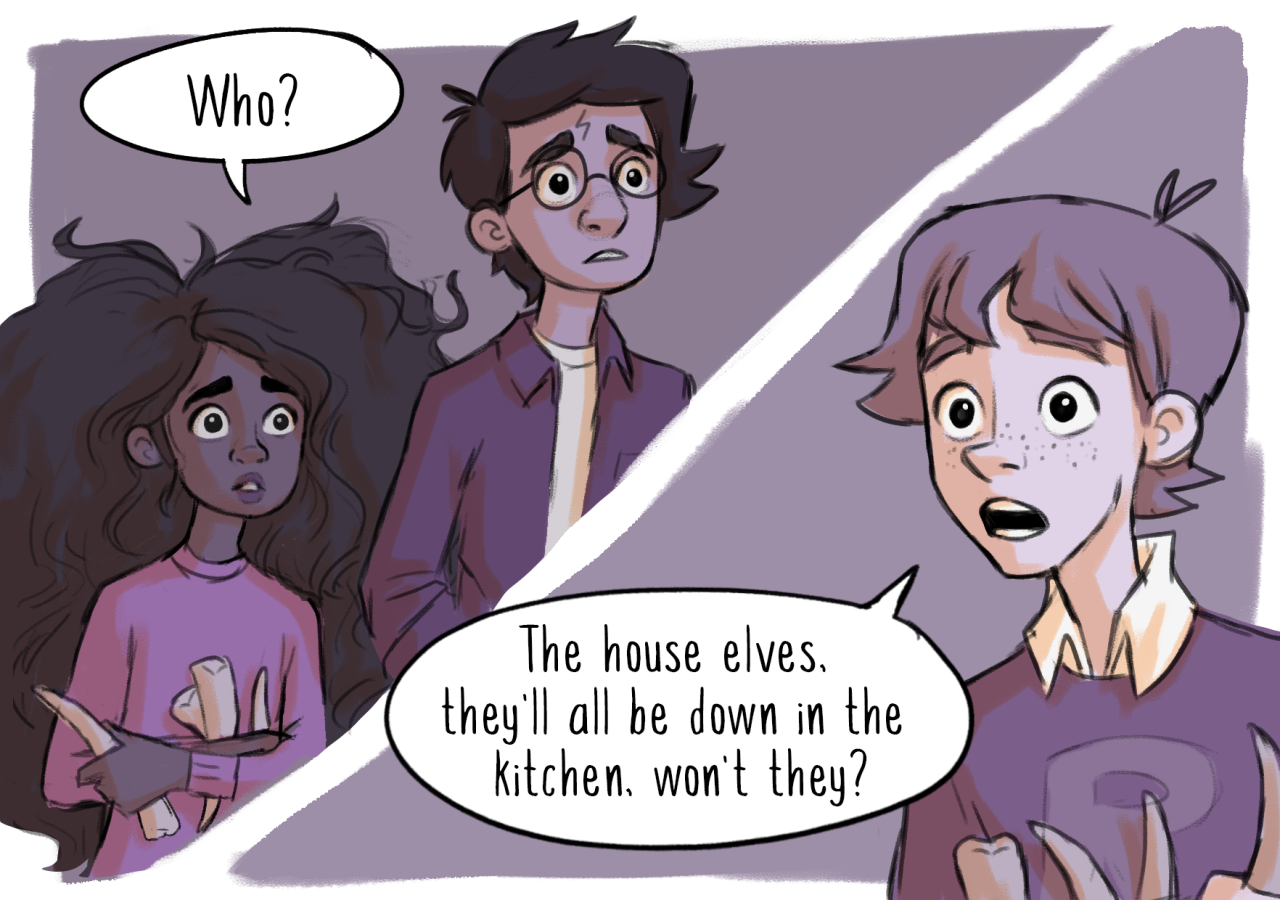Ron Is Obi “Won-Won”
When I suggested this piece at the MuggleNet staff meeting, I accidentally derailed the meeting for about five minutes because a lot of people have a lot of ideas about which Star Wars character Ron represents, ranging from Han Solo and R2D2 to Jar Jar Binks. But I contend Ron Weasley fills the same archetype that Obi-Wan Kenobi does: the wise old mentor archetype within the hero’s journey, depicted below.
The wise old mentor appears at step two of the journey. They guide the hero through the transition from “normal person” to hero and teach the hero the skills that are needed to survive the rest of the steps in the new/special world. One example is when “Old Ben” Obi-Wan Kenobi guides Luke Skywalker off Tatooine and – on the way to rescue Princess Leia – introduces the future Jedi Master to the ways of the Force and of being a Jedi Knight.
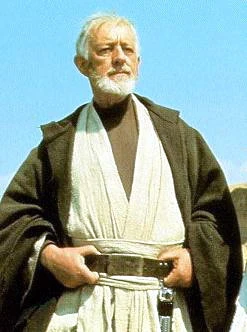
Dumbledore is widely credited as the Obi-Wan of the Harry Potter series. But after examination of the series, the tasks reserved for that archetype are done mostly by Ron Weasley. And this isn’t because of the theory that Ron is Dumbledore with a Time-Turner. It’s much more practical: The person who does the most to explain the wizarding world to Harry is Ron Weasley.
Harry’s first train journey to Hogwarts from platform nine and three-quarters is the departure to the special world. But it is Ron and his family, not Dumbledore, who usher Harry onto the train at King’s Cross. It is Ron who sits next to Harry as they travel on the Hogwarts Express, accompanying Harry as he transitions from the Muggle world to the wizarding world: the point at which he transitions from a boy with broken glasses and a funny scar to a boy training to be a hero.
The train ride also signifies the second part of the archetype: relaying information to the hero that helps the hero live in their new reality. Obi-Wan taught Luke the basics of the Force and how to use a lightsaber. As they travel to Hogwarts, Ron introduces Harry to wizard snacks and candies, including Chocolate Frogs, an act which will later help the trio figure out Nicholas Flamel’s identity. Ron also explains Quidditch and the House system, both of which play heavily into Harry’s education.
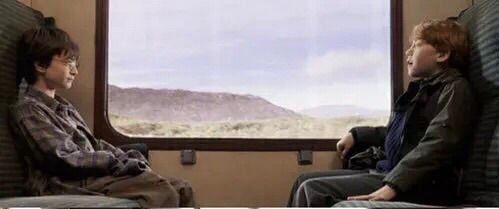
Once at Hogwarts, Ron shows Harry many facets of wizarding society in their first year – from wizards chess to dragon reservations. This continues throughout the series from explaining the term “Mudblood” in Chamber of Secrets all the way to explaining Unbreakable Vows in Half-Blood Prince. But beyond lessons that help Harry at school, Ron shows Harry the wizarding world is larger than he previously imagined when he invites Harry to the Quidditch World Cup. Perhaps most importantly, Harry’s friendship with Ron brings Harry to the Burrow wherein Harry learns about what it means to be part of a family.
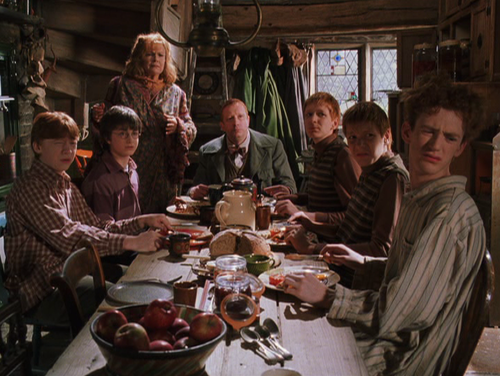
You may say that most of these depictions of Ron come from knowledge one has gained by living in the magical world all their life – not necessarily wisdom like a sage-like character has. Yet there are a lot of moments in the books when Ron shows he has more than innate knowledge that could be ascribed to wit and wisdom. We see this in the confrontation with the troll in the girl’s bathroom when Ron uses the Levitation Charm without any encouragement from the others, when Ron wins against the human-sized chess set, and when Ron suggests using Felix Felicis to get the memory from Slughorn.
Ron especially shines in Deathly Hallows. Ron is the one who suggests getting and using a basilisk fang from the Chamber of Secrets during the Battle of Hogwarts. In the first few books, Ron shows no interest in house-elf welfare. He only joins SPEW to keep Hermione off his back. But by the end of the series, he is actively caring about house-elves. It shows he is willing to grow as a person and admit previously held beliefs sometimes need to change.
Ron gains emotional intelligence as well. Ron understands in Goblet of Fire that his jealousy issues were the root of his anger at Harry being a Triwizard champion and gets over those emotions to help Harry survive the rest of the tournament. Hermione declared Ron had “the emotional range of a teaspoon” (OotP 459). But Ron grew to be more emotionally aware of himself and others in Deathly Hallows, especially after he realized the consequences of leaving. That growth helped him support Harry and Hermione, especially after the events at Malfoy Manor.
I presented these arguments to a two-time state champion debater, and he said he’d buy Ron is Obi-Wan or – as Lavendar Brown would call him – Obi “Won-Won.” While we can derail staff meetings over the best character Ron represents in the Star Wars universe, I still say Ron is more like Obi-Wan than Jar Jar Binks.
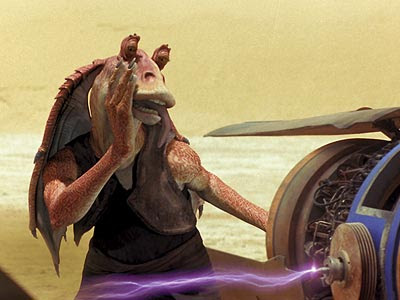
What are your thoughts? Do you think there is another fictional character, Star Wars or otherwise, whom Ron embodies?



